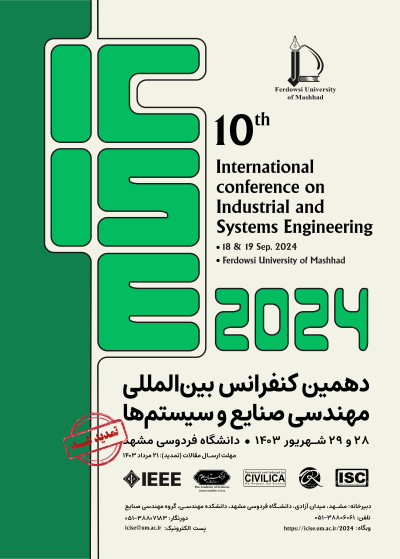0% Complete

نویسندگان :
کلمات کلیدی :
چکیده :
لیست مقالات بایگانی شده
علیرضا عباس زاده مولایی - عبدالله آراسته - میرسامان پیشوایی
شیرین بذیون - مهدی ایرانپور
محسن فریبرز راد - منیره احمدی منش
پوریا محمدیپور - هیوا فاروقی - حسن رسائی
علیرضا حق شناس نصرآبادی - رضا قاسمی یقین
محمد زعفری - محمد موسیزاده
جواد امیریان - حسین عموزاد خلیلی - احمد مهرابیان
Armaghan Alaedini - Mohammad Reza Akbari Jokar





